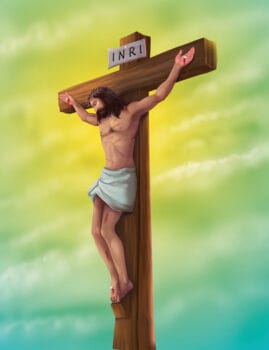Introduction: It was about thirty years ago that I started hearing a new idea about something called “diversity.” Part of the concept was already clear to me because I received my undergraduate degree from Andrews University. When I was an Andrews student, it had the highest percentage of foreign students of any college in the United States. It was interesting to learn about the background of other students and a challenge to understand the accented English of some of the professors. We had unity in the Christian mission of the school.  The new diversity turns out to be much different. It does not strive for unity; rather it divides and each division takes pride that it is different, and perhaps superior. Unity is never the goal. Our study this week examines Paul’s vision of unity. Let’s dive into our study of the Bible and learn more!
The new diversity turns out to be much different. It does not strive for unity; rather it divides and each division takes pride that it is different, and perhaps superior. Unity is never the goal. Our study this week examines Paul’s vision of unity. Let’s dive into our study of the Bible and learn more!
I. The Goal of Unity
A. Read Philippians 2:1. Paul has several “if” statements. Let’s examine them individually. He writes “if there is any encouragement in Christ.” Is there encouragement in Christ?
- If so, what is it? (The most important encouragement is that we have eternal life available to us through Christ. Death is defeated. That is encouraging!)
B. Philippians 2:1 also asks if there is “any comfort from love?” Is there comfort from love?
- If so, what is it?
C. Philippians 2:1 also asks if there is “any participation in the Spirit?”
- This seems different. Is there participation in the Spirit in the life of a Christian? (Read John 16:7. Jesus says it is to their advantage that He goes, so the Holy Spirit may come. Certainly, having the Holy Spirit work in our life is central.)
D. Philippians 2:1 asks if there is “any affection and sympathy?” It is more difficult to understand what Paul is asking here. Do you think he is asking if there is any “affection and sympathy” among the Philippians? (One commentary suggests that Paul is asking if the Philippians have any affection and sympathy for him? The answer must be that they do.)
E. Read Philippians 2:2. How is the call for having the same mind, same love, and of one mind connected to Paul’s joy? (If you look at Philippians 2:1, Paul seems to be describing the things that he has been teaching the Philippians that are essential to their Christian life. He then says that if you understand what I want for you it will give me joy.)
- What does Paul say results from accepting and practicing what he has been teaching? (The result is unity: the same mind, love, and agreement.)
- What does this teach us about unity? (It results from learning and understanding the spiritual points Paul lists in verse 1.)
II. The Destruction of Unity
A. Read Philippians 2:3. Most of what I do has “ambition” as part of my motivation. What about you?
- When we were looking for a new pastor, one young candidate was filled with ambition to succeed. We thought he was the one we wanted, and we were right. Is Paul condemning that?
- How important is the word “selfish” in the phrase “selfish ambition?” (While I have always been ambitious (meaning that I wanted to succeed), when as a young man, I decided to become a lawyer my desire was to work for the church. More than a decade later, when I was closing in on my goal of becoming a lawyer, I made an odd marriage proposal. I told the woman who is now my wife that I would be a “poor lawyer” because the church would not pay me very well.)
- Have you met people in the local church who want to hold office primarily because they want the honor?
a. What should be the proper motivation to hold a position in the church? (People in the church should be elevated to positions of authority because others see that they are qualified and doing the work well.)
B. Look again at Philippians 2:3. What do you think it means to count others as being more significant?
- Everyone reading this has had teachers in their life. Were they all the same quality? Should the best teacher consider the worst teacher “more significant?” (No. That would be false.)
- If we intuitively know that others are not automatically more significant, what can Paul mean? (Read Romans 12:10 and Galatians 5:13. These texts teach us that we should honor, value, and serve others. In that way others are “more significant.”)
C. Read Philippians 2:4. Is it good to consider our own interests? (Yes, Paul does not condemn that.)
- What does Paul mean when he tells us to look to the interests of others?
- When you meet someone and they ask you how your family is doing, do you just answer? Or do you also ask how their family is doing? (A godly man taught me that I should direct the conversation to the welfare of others.)
- The title I used for this section is the “destruction of unity.” How does the current call for diversity fit our discussion so far?
a. If a pilot or brain surgeon is hired for any reason other than competence, is that truly considering the significance of others?
III. The Mind of Jesus
A. Read Philippians 2:5-7. Do you think Jesus thought the average sinful person was “more significant” than He was? (No. The point is that Jesus gave up the glory of His position to serve the interests of humans, who are not even comparable to Him.)
B. Read Philippians 2:8. The humility of Jesus accepted being tortured and shamed. Do you have that mind? That attitude?
- At one time I had more interaction with those coming to the church for help. Almost without exception they were demanding and ungrateful. How do you react to people like that? (It made me unhappy and sorry that I had helped. Contrast that with the mind of Jesus who gave up His life for those who were taunting and torturing Him. The Holy Spirit has work to do in me.)
- Most of us are not going to be tortured, taunted, and killed because we have preferred the interests of others. But in the current controversy over diversity we are likely to run into those who claim “pride” in their group. How would the mind of Jesus handle that? (When the diversity is sin, Jesus called out sin, but He gave up His life for sinners.)
IV. The Reward
A. Read Philippians 2:9-11. What is the goal of putting others first? To come in second? (The goal is advancing the gospel of Jesus. That brings rewards. Jesus, who is an extreme example of putting others first, ended up with the ultimate reward of being first.)
- Will that also happen to you?
B. This past weekend I flew to another state to present a seminar on religious liberty. The event was advertised and a man I had not seen or heard from in decades sent me a note. When I searched my mind I recalled him from my early days working on construction. He remembered that my goal was to become a lawyer, and he congratulated me on meeting my goal. In my experience the goal of serving God has resulted in great rewards. Helping individuals to keep their job and their faith has brought joy. How do you think it would have worked out if I became a lawyer in order to be wealthy? (Many lawyers are unhappy with their work. Having a job that serves others is the best path to an enjoyable, rewarding career.)
C. Friend, Hebrews 11 tells us that service to God does not always work out well on earth. The reward waits until heaven. Paul’s advice to serve the interests of others represents the normal outcome. You are blessed because of your service. If you sense you have the wrong attitude, will you ask the Holy Spirit to help you to serve and unify?
V. Next week: Shining as Lights in the Night.
Copr. 2026, Bruce N. Cameron, J.D. Scripture quotations are from the ESV® Bible (The Holy Bible, English Standard Version®), copyright © 2001 by Crossway, a publishing ministry of Good News Publishers. Used by permission. All rights reserved. Suggested answers are found within parentheses. If you normally receive this lesson by e-mail, but it is lost one week, you can find it by clicking on this link: http://www.GoBible.org. Pray for the guidance of the Holy Spirit as you study.



